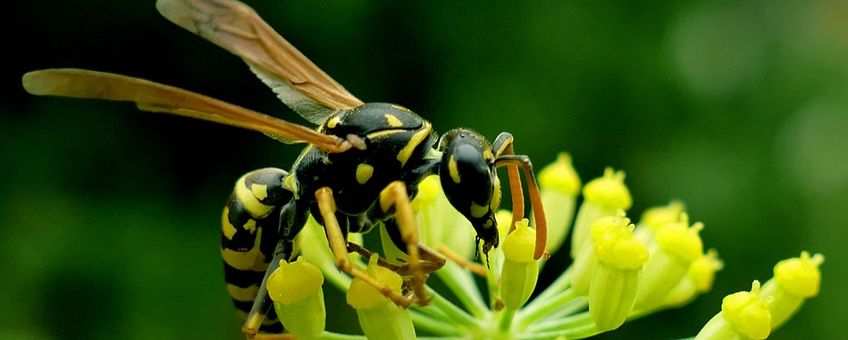
Increasing number of plant-protecting wasps in botanical garden
Hortus botanicus LeidenRoughly 5,000 species of wasps have been recorded for The Netherlands. Wasps predate on insects such as flies, aphids and caterpillars. They are important biological control agents that protect plants by reducing herbivore pressure. Until recently, just 13 species of wasps were recorded for the Leiden Hortus botanicus. On August 17th 2025, we participated in the national wasp count for the first time. Aglaia Bouma, entomologist at Naturalis Biodiversity Center, kindly helped us with this count.

We walked through the botanical garden with a beat sheet, butterfly net and exhauster. A total of 11 species were detected. In the Clusiusgarden, we observed hunting Common wasp (Vespula vulgaris) and German wasp (V. germanica). On the oaks along the systematic garden, we found galls of Knopper gall causer (Andricus quercuscalicis).


Several parasitic wasps were collected from the Libanon cedar (Cedrus libani) and Ivy (Hedera helix). Kees van Achterberg and Sandrine Ulenberg kindly helped us identify these as Opius sp., parasitizing on leaf mining flies, Asaphes vulgaris, parasitizing on o.a. aphids, and Meraporus graminicola, parasitizing on gall midges. None of these species are commercially sold as biological control agents. These wasps must therefore have reached Hortus botanicus Leiden spontaneously.


Five years ago, pesticides were fully banned in Hortus botanicus Leiden. We are observing a steady increase in insect species ever since. We are very happy that an increasing number of wasp species colonizes our botanical garden, as this indicates that a fine-layered food web, with predators and prey species, is evolving. These organisms keep each other in control and prevent explosive increases in herbivores that are damaging our special plant collection.
Text: Barbara Gravendeel, Hortus botanicus Leiden
Images: Jan Meijvogel (lead photo: European paper wasp (Polistes dominula) on Wild parsnip (Pastinaca sativa)); Aglaia Bouma

